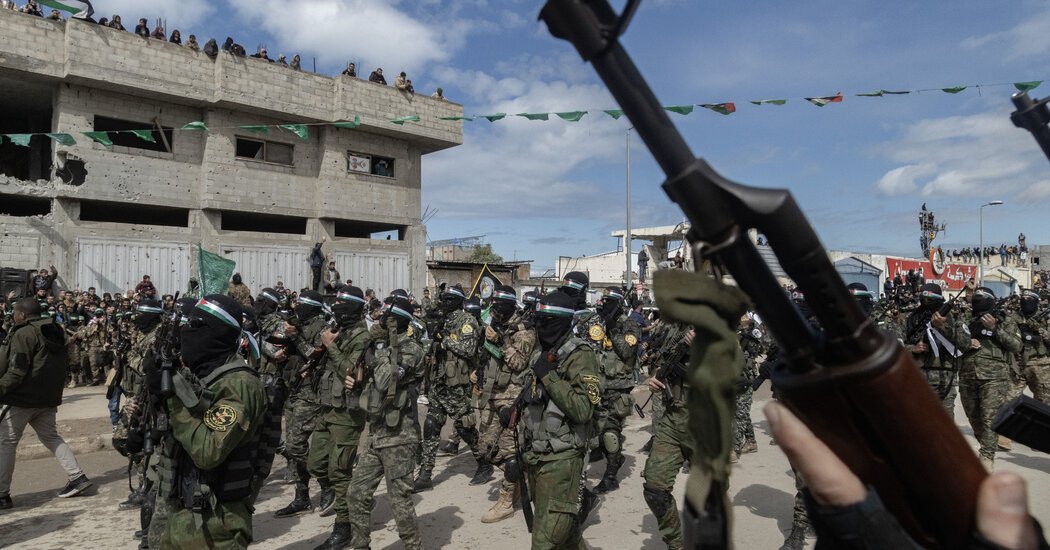Mr. Abu Marzouk has said that he was not informed about the specific plans for the Oct. 7 attack, in which roughly 1,200 people were killed and about 250 taken hostage, but that he and other Hamas political leaders had endorsed its overall strategy of attacking Israel militarily.
“If it was expected that what happened would happen, there wouldn’t have been Oct. 7,” as far as he was concerned, he said.
He also suggested that there was some willingness within Hamas to negotiate the future of the group’s weapons in Gaza — which has been a sticking point in negotiations with Israel — taking a position that other Hamas officials have rejected. A compromise might help Hamas and Israel avoid a renewal of the war, analysts say. Israel has said that it wants Hamas to dismantle its military capabilities.
Mr. Abu Marzouk, 74, the first leader of Hamas’s political office in the 1990s, made the remarks in a phone interview on Friday.
It’s unclear to what extent Mr. Abu Marzouk’s views on Oct. 7 are shared by other Hamas leaders, or if they were an attempt to influence negotiations with Israel or put pressure on fellow leaders within the militant group. Other Hamas leaders, especially those closely connected to Iran and the Lebanese militant group Hezbollah, have tended to take a harder line.
